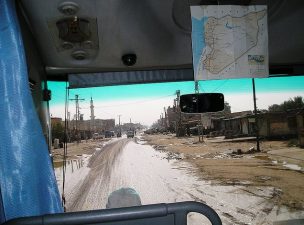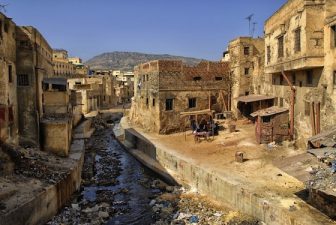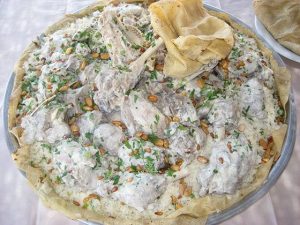
The Louvre exhibition demonstrates Saudi Arabia’s historical influence on the Middle East region; can they spread a clean energy agenda too?
When we think of Saudi Arabia, we think of oil, robed men, Mecca, and more oil. Certainly there’s an abundant supply of it, though, like in Egypt, the country experienced power shortages this summer as a result of excess demand during a heatwave so strong it set off fires in Iran. However, even before the oil boom, Saudi’s historical artifacts – some only recovered within the last five years – demonstrate that the people from Saudi have always had a penchant for wealth. And because of the country’s geographical location, it has also had a lasting influence on other nations along its trading route.
Saudi’s place in history
Saudi’s historical role is becoming clear for the first time as the country’s artifacts take their long-distance tour to the Louvre in Paris. There they have been arranged for an exhibition called Roads of Arabia: Archaeology and History of the Kingdom of Saudi Arabia.
Opened on 14 July, 2010, the exhibition is showcasing 300 archeological treasures, many dating to before the 7th Century birth of Islam, and drew approximately 38,000 visitors in its first month. The exhibition will continue until 27 September, 2010.
“It’s a groundbreaking historic event,” the Saudi Minister of Tourism and Antiquities, Sultan Bin Salman Bin Abulaziz Al Saud told CNN’s Laura Allsop.
The Golden Glove
Among the artifacts shown are gold and pearl jewelry, a gold glove recovered from a tomb in Thaj, as well as a door from Mecca that was a religious gift from an Ottoman sultan.
According to the Louvre website:
Despite a hostile natural environment, the inhabitants succeeded in taking advantage of their country’s geographical situation as a crossing point for the roads linking the shores of the Indian Ocean and the horn of Africa to Egypt, Mesopotamia, and the Mediterranean world. Early in the first millennium BC this trans-Arabian trade flourished, bringing prosperity to the caravan cities and permeating the local culture with new fashions and ideas from the great neighboring empires.
Among the ideas that continues to flourish is Islam. At least two million people attend the Hajj at Mecca each year, which does not take into account the Umrah, or the lesser pilgrimage. As such, millions of people head and look to Saudi Arabia, to some extent, for their spiritual guidance.
Might it be said, then, that their environmental policy could be equally compelling? Recently, Saudi Arabia committed to developing solar power technology on a fairly substantial scale. If this historically influential nation modifies their energy agenda, then is it possible that other Arab nations such as Oman, Qatar, and Iraq will be inspired to do the same?
:: image via SCTA and story via CNN
More news from Saudi Arabia:




he Saudi King Abdullah is bringing more openess and change to Arabia, and allowing its history to be known to the world, which is a great step forward. Bravo to Arabia!
The Saudi King Abdullah is bringing more openess and change to Arabia, and allowing its history to be known to the world, which is a great step forward. Bravo to Arabia!
Bravo indeed. Thanks Catarin for your comments.